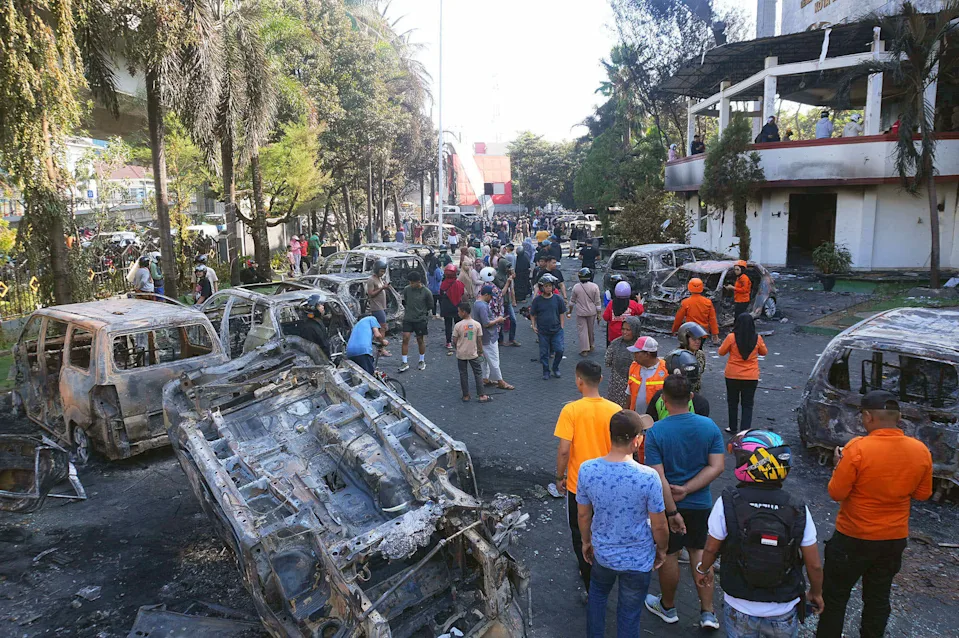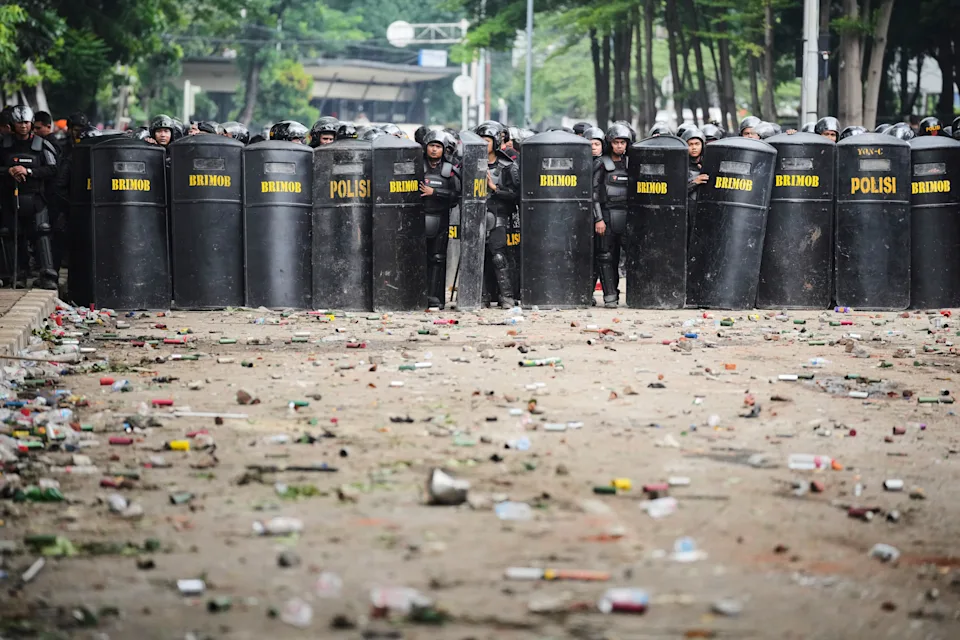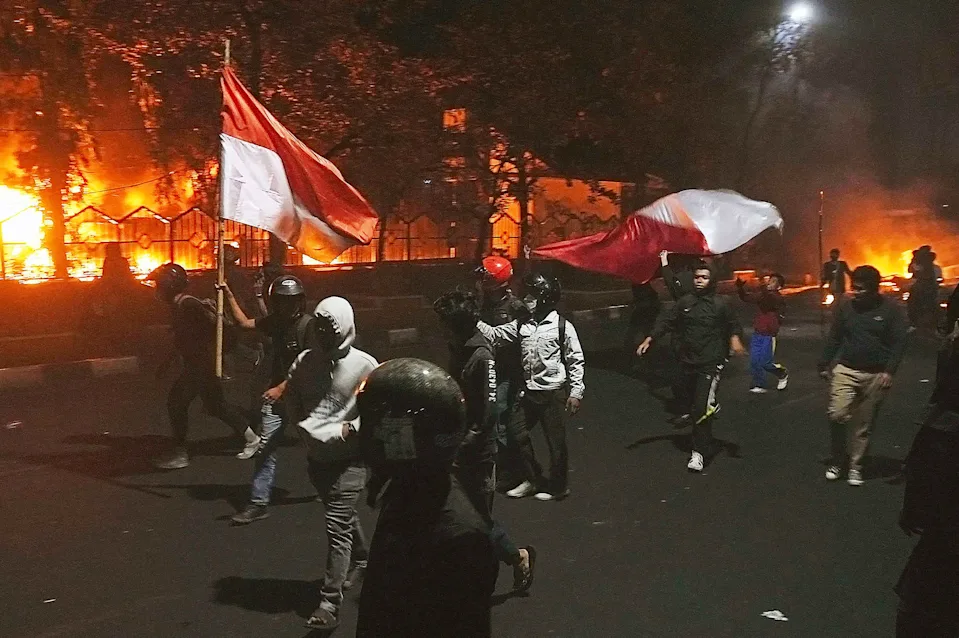A wave of violent protests has swept across Indonesia after public outrage over parliamentary perks collided with anger at police brutality, leaving multiple cities in turmoil.
In Makassar, South Sulawesi’s provincial capital, a mob torched the local parliament building late Friday, killing at least three people and injuring five more who leapt from the burning structure, according to disaster officials. Similar unrest erupted in Bandung, West Java, where demonstrators set another parliament office ablaze, though no casualties were reported. Meanwhile, in Surabaya, protesters stormed police headquarters, setting fire to vehicles and tearing down barriers, prompting security forces to respond with tear gas and water cannons.

The protests began in Jakarta earlier in the week after revelations that Indonesia’s 580 lawmakers each receive a monthly housing stipend of 50 million rupiah (roughly $3,000) — nearly ten times the capital’s minimum wage. Critics argue the allowance is obscene in a country grappling with surging living costs, high taxes, and rising unemployment.
Tensions escalated sharply following the death of 21-year-old delivery driver Affan Kurniawan. Viral footage appeared to show him struck and run over by a police vehicle during Thursday’s clashes in Jakarta. Witnesses reported he had been completing a food order when he was caught in the chaos. His death has become a flashpoint, fueling accusations of unchecked police violence and deepening public fury at government impunity.

Nationwide, clashes between protesters and security forces have spread to Medan, Solo, Yogyakarta, Malang, Bengkulu, Pekanbaru, and Papua’s Manokwari. Indonesia’s human rights commission, Komnas HAM, estimates nearly 1,000 arrests were made in Jakarta alone by Thursday, while police reported 25 officers seriously injured. Human rights groups believe civilian casualties are undercounted.
Amnesty International condemned the government’s response, warning that crackdowns on peaceful dissent violate fundamental rights. “No one should lose their lives for exercising their right to protest,” said Usman Hamid, Amnesty Indonesia’s executive director.
Under growing pressure, authorities confirmed that seven police officers linked to Kurniawan’s death have been detained for questioning over ethics violations.
The unrest has also galvanized Indonesia’s cultural figures. Filmmakers, actors, and comedians have used social media to denounce systemic corruption and demand justice. Actor Omara N. Esteghlal accused lawmakers of being “disgustingly corrupt,” while director Angga Sasongko urged Indonesians to resist silence in the face of injustice. Actress Dian Sastrowardoyo and comedian Ernest Prakasa also issued stark rebukes, framing Kurniawan’s death as symbolic of broader institutional rot.

What began as anger over lavish political perks has now morphed into a nationwide confrontation with Indonesia’s ruling elite and its security forces. The unrest underscores both the fragility of public trust in government institutions and the explosive mix of inequality, corruption, and repression simmering beneath the surface of Indonesian politics.


